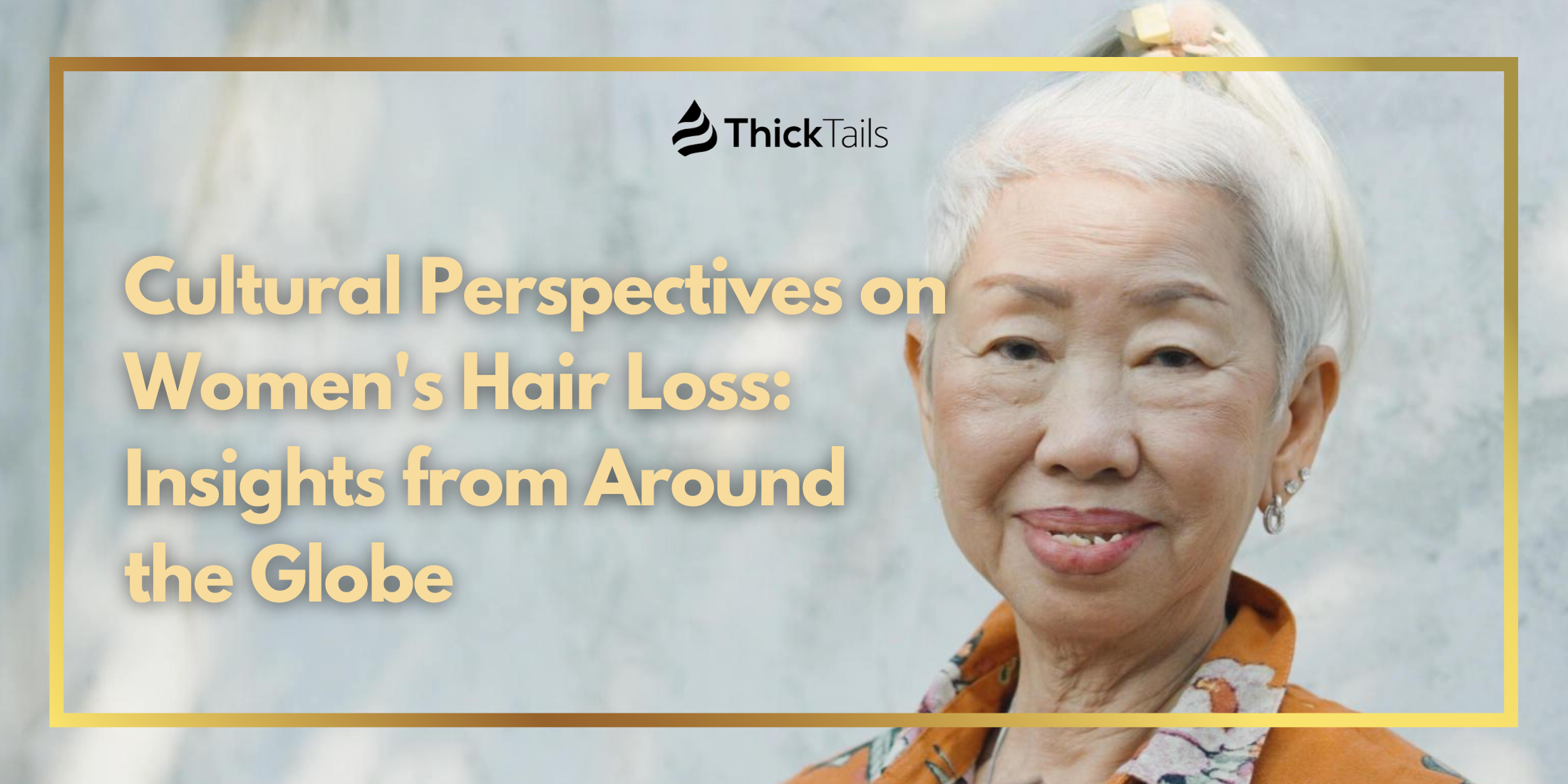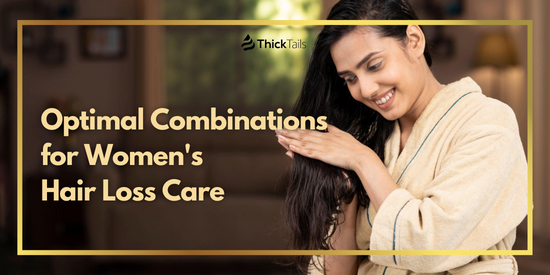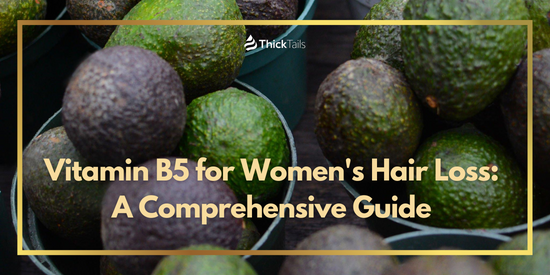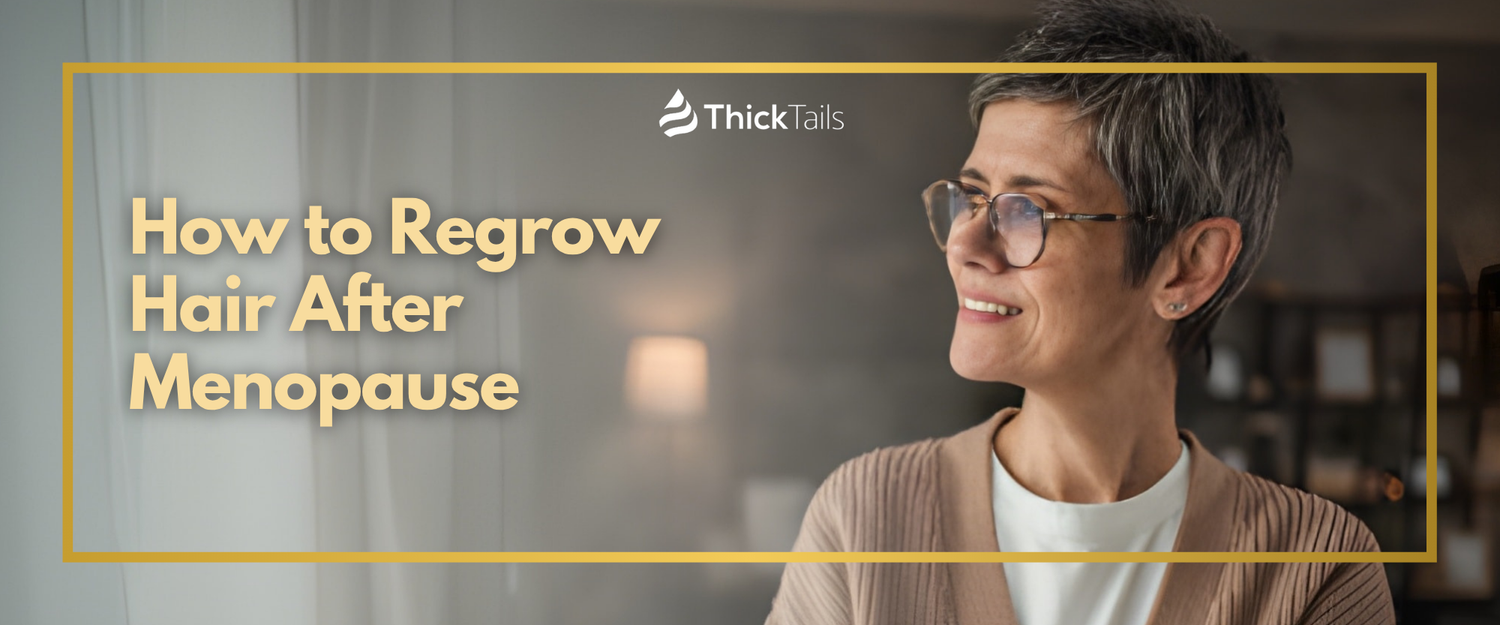Hair, an intrinsic part of one's identity, is interwoven with the fabric of culture and personal expression. For women, the loss of this significant feature can be emotionally jarring, impacting self-esteem, mental well-being, and social interactions. Understanding how different cultures perceive and cope with women's hair loss is crucial, especially for those navigating its complexities. This blog post is a curated exploration of global perspectives on women's hair loss—shedding light on traditional beliefs, treatment nuances, and the subtle dance between culture and beauty standards.
I. Cultural Beliefs and Traditions Surrounding Women's Hair Loss

From ancient customs to modern-day perspectives, this section dives into the various cultural norms and practices that have long governed the realm of female hair loss.
In societies where thick, lustrous hair is seen as a symbol of youth and vitality, women experiencing hair loss often feel a stark dissonance with such prevailing ideals. Treatment approaches can range from home remedies steeped in tradition to the adoption of cutting-edge medical interventions. Despite the diversity in management strategies, the pursuit of solutions for hair loss among women underscores a universal desire to align one's appearance with cultural definitions of beauty.
Traditional Remedies and Practices from Different Cultures
There's a rich tapestry of cultural treatments for women's hair loss, passed down through generations. In India, Ayurvedic practices advocate for the use of herbal oils and diet modifications rich in vitamins. Chinese medicine often prescribes acupuncture and 'Qigong' exercises to improve blood flow to the scalp. Across Africa, shea butter and hibiscus are heralded for their protective and nourishing properties for the hair. These varied approaches underscore the belief that holistic well-being is integral to hair health.
Historical Perceptions of Female Hair Loss
Historically, hair loss in women was often a taboo subject, accompanied by stigma and shame. Records suggest that ancient Greeks and Egyptians used a mix of honey, castor oil, and alabaster to stimulate hair growth, affirming the value placed on a full mane. Conversely, in some cultures, hair loss was considered a sign of wisdom and spiritual ascension, revered rather than reviled.
Modern Cultural Attitudes Towards Women with Hair Loss
Today, society's view on female hair loss is evolving. Movements advocating for self-acceptance have begun reshaping the narrative, with bald women featured in marketing campaigns and media, challenging traditional beauty standards. Despite this, cultural reticence around baldness—and its perception as a predominantly male issue—still persists, particularly in more conservative societies.
II. Global Insights into Women's Hair Loss Treatments
Exploring the diverse landscape of hair loss treatments across cultures reveals a wealth of insights into how women approach this challenge worldwide. In the quest to combat hair loss, many women turn to advanced hair care products, such as specialized shampoo and conditioner formulations targeted for thinning hair. The industry has also seen a surge in the development of supplements rich in biotin, iron, and omega-3 fatty acids, intended to support hair strength from within. Additionally, hair serums infused with ingredients like caffeine and minoxidil are gaining traction as topical solutions designed to revitalize hair growth and density.
Traditional and Alternative Treatments Used in Various Cultures
A look into various cultural practices uncovers a spectrum of treatment methods. In Japan, 'Camellia oil' is esteemed for promoting hair growth and is often used in the 'Washoku' diet. In Latin America, treatments like 'laurel and cinnamon' leave-in hair masks are credited with restoring vitality to the hair. These regional practices not only seek to address the physical symptoms of hair loss but also aim to restore a woman's sense of identity and beauty.
As women seek holistic remedies for hair loss, the demand for natural, health-conscious hair care alternatives rises. This has led to a proliferation of organic and hypoallergenic shampoo and conditioner options targeting sensitive scalps and fragile hair strands. Moreover, interest in custom-blended hair serums with potent bioactive ingredients marks a significant shift toward personalized treatment, reflecting a deeper understanding of hair loss complexities unique to each woman.
Influence of Cultural Practices on Modern Hair Loss Treatments
Modern science often seeks inspiration from traditional methods to create more effective treatments. The use of plant extracts, such as ginseng or saw palmetto, in contemporary hair serums and supplements is a nod to historical practices. These ingredients, with their roots in cultural beliefs, are now being studied for their clinical efficacy and incorporated into Western medicine.
Cultural Considerations in Hair Loss Prevention and Management
The approach to prevention and management of hair loss is deeply intertwined with cultural norms. In the Mediterranean, where hair holds significant cultural value, prevention often starts in childhood with the use of olive oil soaps, and continues with a robust diet high in Omega-3 fatty acids. Meanwhile, in Scandinavian cultures, where exposure to harsh winter elements can impact hair health, protective styles like braids and buns serve as both practical and cultural practices.
III. The Intersection of Culture and Beauty Standards in Women's Hair Loss

Cultural beauty standards heavily influence how women perceive their hair loss and the range of available solutions.
The labyrinthine relationship between cultural beauty standards and women's hair loss is profoundly evident in how individuals internalize and respond to their own experiences. Women traversing the often challenging journey of hair loss grapple with external pressure and internalized ideals that dictate their self-worth. It is a reflection of how deeply rooted and pervasive cultural definitions of beauty are, shaping not just the perceptions but the very personal narratives of those dealing with hair loss.
Impact of Cultural Beauty Standards on Women's Perception of Hair Loss
Beauty ideals significantly shape women's responses to hair thinning. In regions where long, luscious hair is equated with femininity, its loss can be a source of distress. Contrastingly, in cultures valuing understated beauty, such as Japan, the response is often less rooted in external judgments. Understanding these cultural benchmarks is critical for supporting women in their hair loss journeys.
Representation of Women with Hair Loss in Different Cultures
The media's role in depicting women with hair loss is a powerful indicator of societal acceptance. While Western media has begun to portray diverse images, other parts of the world are only just starting to question the homogenized standard of beauty. Visibility matters, and the global representation of women with hair loss is slowly mirroring the reality, albeit with cultural nuances.
Cultural Influence on Hair Care Products and Solutions for Women's Hair Loss
The beauty market is strikingly attuned to cultural preferences, with a wide array of products targeted explicitly at brides, postpartum women, menopausal women, and those undergoing chemotherapy. Culturally tailored shampoos, conditioners, and serums often include ingredients relevant to the region's traditional practices, appealing to a sense of heritage and comfort for women dealing with hair loss.
In conclusion, women experiencing hair loss are not alone on their journey, and a global perspective provides both solace and strategies for navigating this deeply personal issue. By embracing the approach of different cultures towards hair loss, women can avail themselves of a myriad of insights and treatments that resonate with their identity and values. As the conversation around female hair loss continues to expand, cross-cultural understanding allows for a more inclusive and supportive approach to this universal concern.







